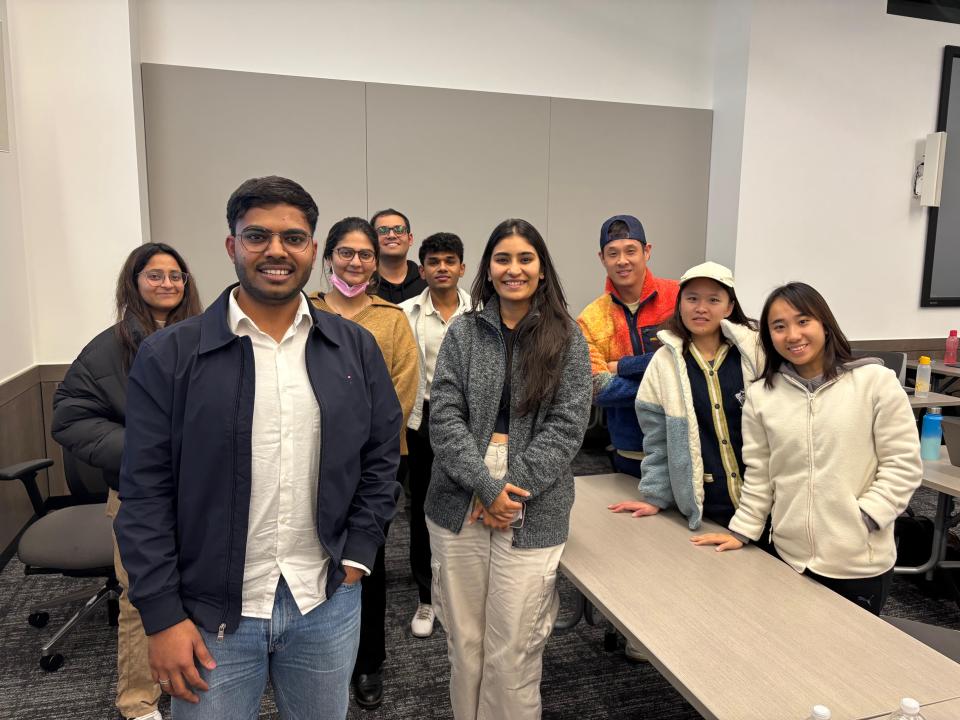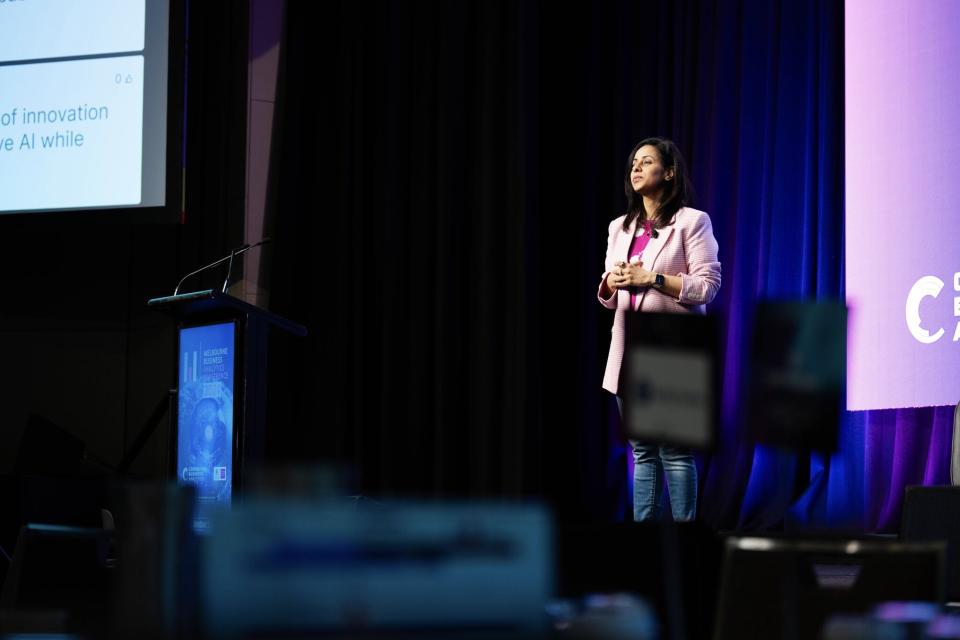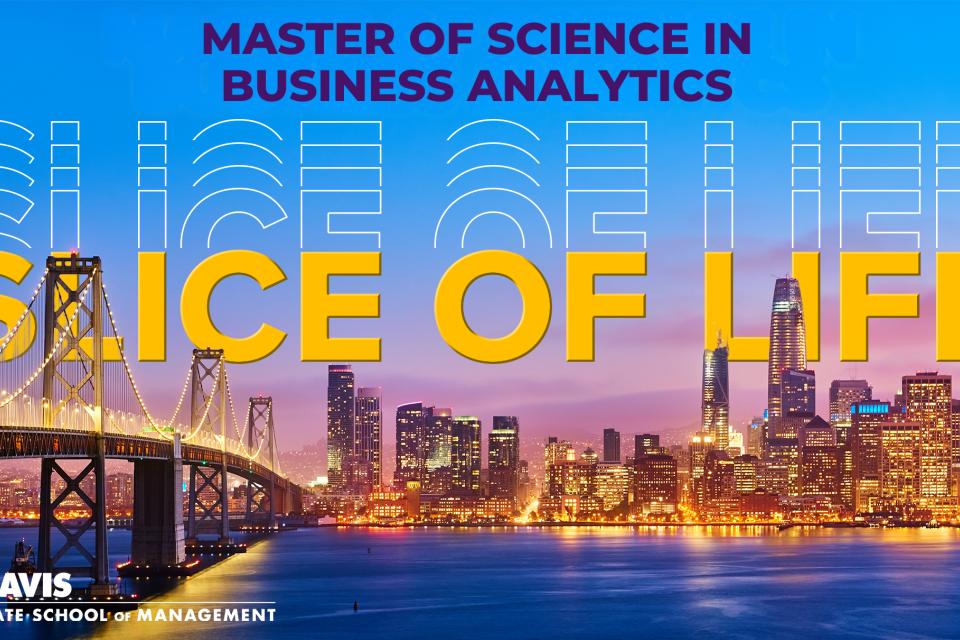What Does an AI Engineer Do?
MSBA alumnus Kshitiz Parashar shares insights on compelling, impactful AI career path

The rapid advancement of artificial intelligence (AI) has created exciting new opportunities for professionals looking to make a meaningful impact in technology.
At a recent AI/ML Engineering workshop hosted by the UC Davis Master of Science in Business Analytics program, alumnus Kshitiz Parashar MSBA 22, shared his personal journey and offered valuable insights in pursuing a career as an AI engineer.
Detailing his early experiences as a software engineer and then as a founding AI engineer at a successful AI startup, Parashar’s session provided a roadmap for aspiring AI professionals. He outlined the essential skills, career prospects and best practices for success to MSBA students at the event.
A Journey in AI: From Software Engineer to Founding AI Engineer
Parashar began by reflecting on his career journey, starting with his initial role as a software engineer at a major bank. While the stability of the banking industry was appealing, he realized that the fast-paced, innovative environment of startups would allow him to thrive as a better fit for his future. This shift led him to transition into the world of machine learning engineering—a move that allowed him to build and scale an AI-driven startup in India.
From there, he took on the role of founding AI engineer at Alhena (formerly Gleen), an AI-focused startup in the Bay Area, where he helped the company scale from $0 to $1M in revenue. Through this experience, he gained invaluable insights into the impact of AI technologies on business growth and learned how to harness AI to solve complex, real-world problems.
Why AI Engineering?
AI engineering has quickly become one of the most sought-after fields in the tech industry. The workshop highlighted why now is an excellent time to pursue a career in AI.
Parashar offered four key reasons why AI engineering is a compelling career path:
- High Demand: AI skills are in high demand, with companies across all industries looking to incorporate AI and machine learning into their products and services.
Innovation: AI engineers are at the forefront of technological advancements, working on cutting-edge solutions like natural language processing (NLP), reinforcement learning and computer vision. - Impact: AI has the power to solve complex, real-world problems—from improving healthcare outcomes to revolutionizing business processes and enhancing user experiences.
Growth: The AI field offers tremendous career advancement opportunities, with positions ranging from entry-level engineering roles to leadership positions in growing AI companies.

Qualities of a Good AI Engineer
As Parashar emphasized, a successful career in AI engineering requires more than just technical knowledge. The following qualities are essential for anyone looking to thrive in the field:
- Software Engineering Skills: Writing clean, efficient and scalable code is the foundation of AI engineering. Strong software engineering skills are a must, especially when it comes to building robust, production-ready AI applications.
- Python Proficiency: Python is the primary language used for AI and machine learning development, and mastering it is essential for working in the field.
- ML Fundamentals: A solid understanding of machine learning algorithms and concepts, including supervised and unsupervised learning, is crucial. Familiarity with natural language processing (NLP) and deep learning is also important for many AI roles.
- Problem Solving and Creativity: AI engineers must be able to tackle complex problems with innovative, out-of-the-box solutions. Creativity, analytical thinking and a passion for continuous learning are key traits of successful AI engineers.
- Retrieval-Augmented Generation (RAG): One exciting concept discussed during the workshop was Retrieval-Augmented Generation (RAG). RAG is a cutting-edge technique that combines information retrieval with text generation to enhance the accuracy and relevance of AI responses.
This hybrid approach is particularly useful for building AI systems that need to pull from large databases of information to answer complex queries.
Many companies are looking for engineers who are proficient in advanced AI techniques like this, making it an important area to focus on when preparing for interviews.
Getting Started in AI Engineering: Essential Tips
The workshop concluded with practical advice for students interested in entering the AI field. Here are the key steps for getting started:
- Stay Updated: AI is an ever-evolving field, and it’s crucial to stay informed about the latest developments. Following news from AI leaders like OpenAI and research papers can help you keep pace with industry trends.
- Learn Tools: Familiarize yourself with the key tools used in AI development. Tools like Cursor for coding, ChatGPT for learning and Claude for computational tasks are excellent resources for both building skills and completing class assignments.
- Participate in Hackathons: AI-focused hackathons, especially those in tech hubs like San Francisco, provide great opportunities to collaborate with other aspiring engineers, build your portfolio and gain hands-on experience.
- Build Projects: Start building your own AI projects. A great starting point is creating a text-to-SQL AI agent, which converts natural language queries into structured queries—a project that combines NLP and database management.
The Future of AI Engineering
The AI/ML Engineering workshop was an eye-opening experience, offering a deep dive into the exciting world of AI engineering. It provided valuable insights into what it takes to build a successful career in the field, as well as the skills and strategies necessary to succeed in this fast-growing industry.
As AI reshapes the tech world, demand for skilled talent is rising. The UC Davis MSBA program in San Francisco equips students with the technical and business skills to lead in this evolving field—offering hands-on experience, alumni mentorship and exposure to cutting-edge AI innovations.


